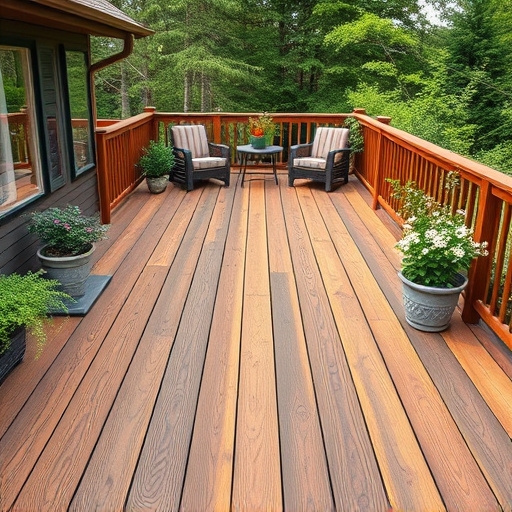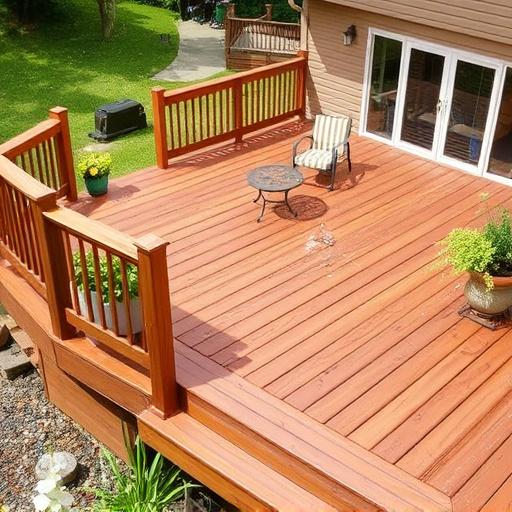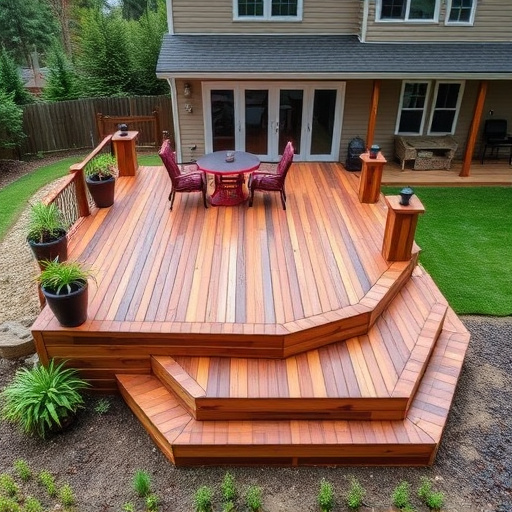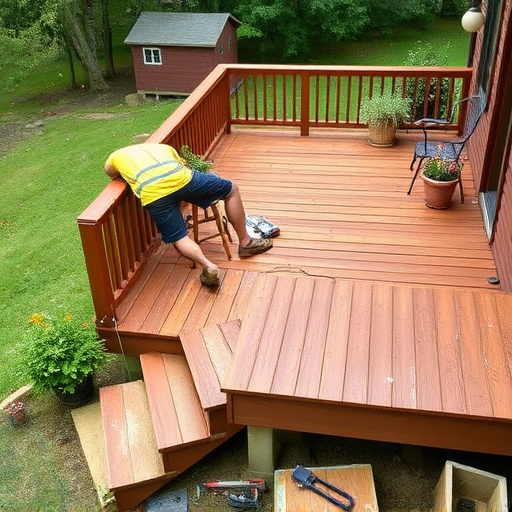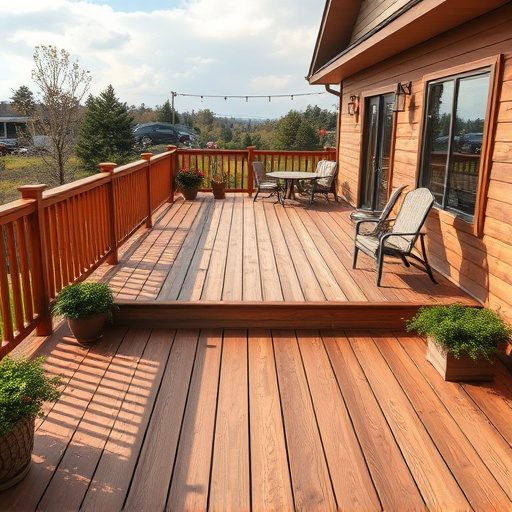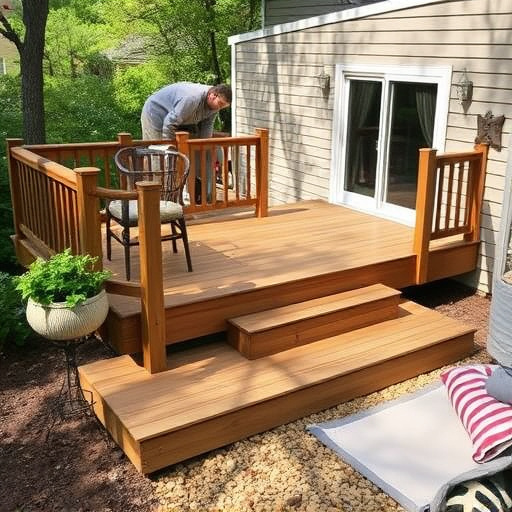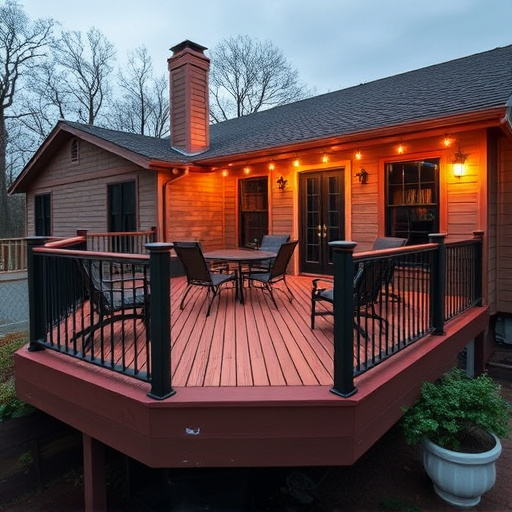By 2025, deck systems undergo significant evolution, blending modern aesthetics and technology. Natural materials, curved designs, and customization define style while smart lighting, audio systems, and durable materials enhance functionality. A growing focus on sustainability incorporates recycled materials, waste reduction, and eco-friendly design, making decks more environmentally friendly and visually appealing.
Deck systems are evolving rapidly, transforming outdoor living spaces in 2025. This article explores three key trends redefining our outdoor areas: Evolving Design Aesthetics for Deck Systems, Technological Integrations in Outdoor Decks, and Sustainable Materials and Eco-Friendly Practices. Discover how these innovations blend form with function, enhancing both aesthetics and functionality while promoting environmental responsibility. By embracing these trends, homeowners can create truly modern and sustainable exterior oases.
- Evolving Design Aesthetics for Deck Systems
- Technological Integrations in Outdoor Decks
- Sustainable Materials and Eco-Friendly Practices
Evolving Design Aesthetics for Deck Systems
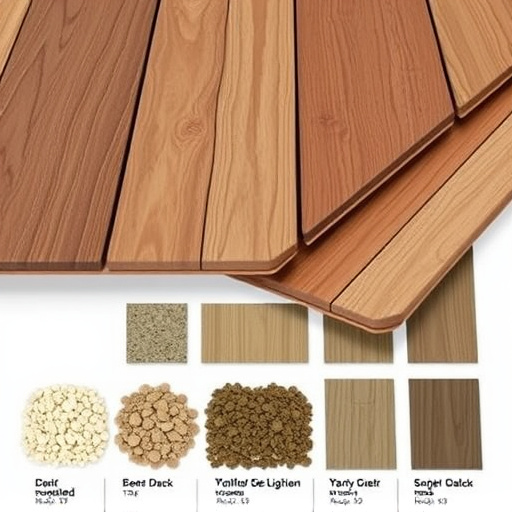
The design landscape for deck systems is undergoing a striking evolution in 2025, reflecting contemporary tastes and technological advancements. Architects and designers are increasingly incorporating natural elements into outdoor living spaces, creating seamless transitions between interior comfort and exterior beauty. This trend is evident in the adoption of organic materials, such as wood and bamboo, which offer a warm, inviting ambiance. Moreover, the integration of sustainable practices has led to innovations like recycled plastic deck boards, appealing to environmentally conscious homeowners.
Esthetically, modern decks are moving away from conventional rectangular shapes, embracing curved lines and unique geometric patterns. The focus is on creating dynamic spaces that double as functional outdoor rooms. In terms of customization, deck systems now offer a wide array of options for siding repairs and professional siding installations, allowing property owners to personalize their outdoor retreats. Additionally, the need for roof replacement in older decks has spurred the development of durable, low-maintenance decking materials, ensuring long-lasting outdoor spaces that require minimal upkeep.
Technological Integrations in Outdoor Decks
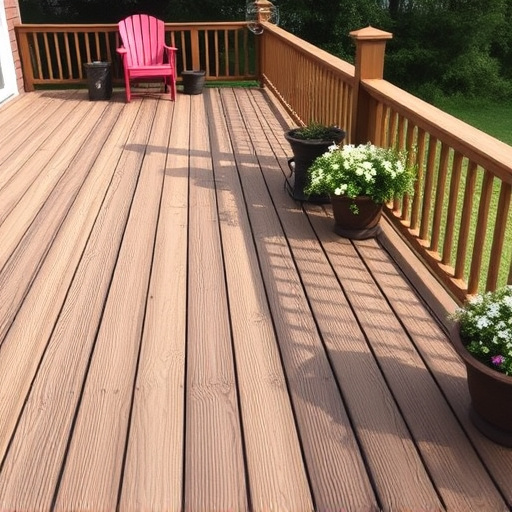
The year 2025 promises exciting advancements in outdoor living spaces, with technological integrations playing a pivotal role in transforming traditional decks into modern, smart oases. Homeowners are increasingly embracing digital solutions to enhance their outdoor experiences. For instance, integrated lighting systems that can be controlled via smartphone apps allow for customizable ambiance, ensuring the deck is as functional as it is inviting. Additionally, advanced audio systems enable seamless music streaming, turning any gathering into a vibrant party.
These technological trends extend beyond entertainment, with smart decking materials offering improved durability and low maintenance. As such, professionals in siding services can now offer comprehensive solutions that combine elegant aesthetics with cutting-edge technology. By incorporating these innovations, deck systems become more than just outdoor structures—they become integral parts of modern homes, where families and friends can connect and create lasting memories, all while enjoying the benefits of contemporary convenience, including efficient siding and gutters management.
Sustainable Materials and Eco-Friendly Practices
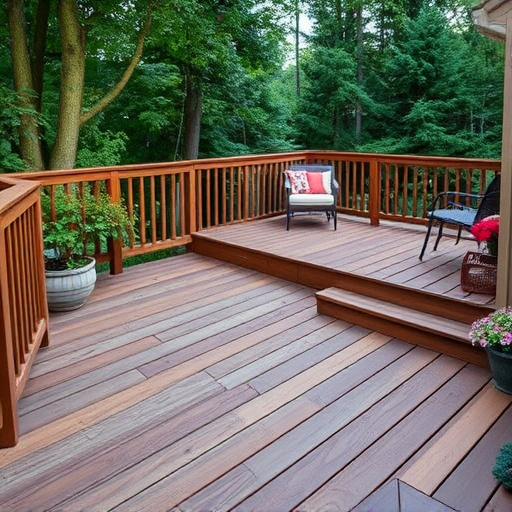
As we move into 2025, outdoor living spaces are evolving to reflect a growing awareness of sustainability and eco-friendly practices. In this regard, deck systems are no exception, with a notable shift towards using sustainable materials in construction. Natural, recycled, and reclaimed wood options are gaining popularity due to their reduced environmental impact compared to traditional treated woods and synthetic alternatives. These materials not only contribute to a greener planet but also offer unique aesthetics that blend seamlessly with natural landscapes.
Beyond just the choice of materials, modern deck systems integrate eco-friendly practices in various ways. Innovations in manufacturing processes have led to more efficient use of resources, minimizing waste during production. Additionally, many manufacturers are adopting circular economy models, focusing on product longevity and recyclability. Even components traditionally associated with other aspects of a home’s exterior, such as roofing and siding (including siding installation and siding and gutters), are being designed with sustainability in mind, further enhancing the overall eco-friendliness of outdoor living spaces.
As we look ahead to 2025, the future of outdoor living spaces is defined by innovative deck systems that blend aesthetics, technology, and sustainability. Evolving design trends prioritize elegant, low-maintenance structures that enhance overall well-being. Technological integrations bring smart features to decks, while a growing focus on eco-friendly practices ensures these spaces are in harmony with nature. With these trends shaping the landscape, outdoor decks are poised to become vibrant hubs of modern living, offering serene retreats and entertaining areas that seamlessly connect indoor comfort with outdoor beauty.








